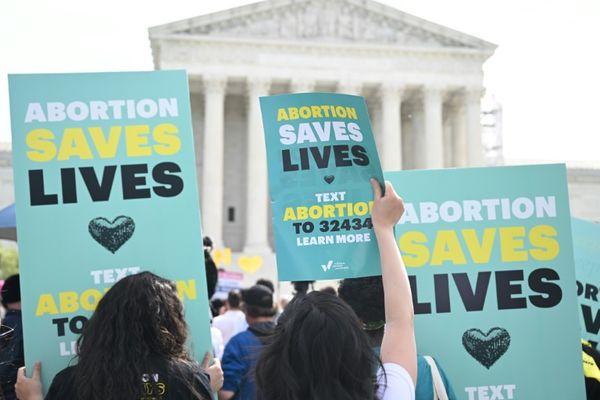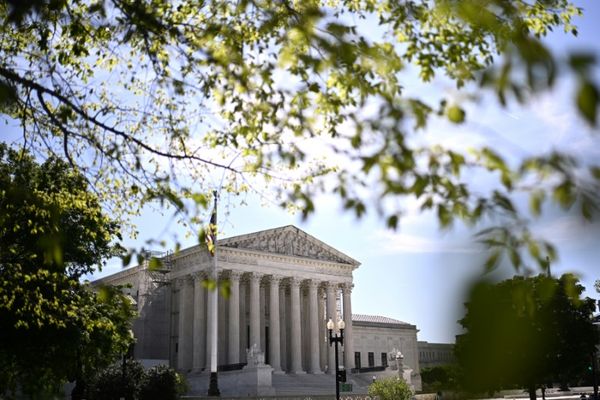
A few days before Mr. Xi’s summit last week with President Biden, according to people with knowledge of the matter, Beijing dispatched a delegation of senior policy advisers and business executives to New York to meet with a U.S. counterpart group set up by insurance executive Maurice “Hank" Greenberg, one of the most successful American businessmen in China.
Wall Street executives have long held a special place in Beijing’s corridors of power. Beijing has viewed Mr. Greenberg, 97 years old, as what Chinese leaders call an “old friend of China." Mr. Greenberg, a decorated World War II veteran and a major Republican donor, is the chief executive of insurance and investment firm C.V. Starr & Co. and former CEO of insurance giant American International Group Inc.
Such a high-level group as the one Mr. Greenberg hosted hasn’t come to the U.S. since the Covid-19 pandemic started nearly three years ago. In that time, relations have plunged to what both sides see as the lowest point in decades, with Beijing and Washington sparring over issues ranging from the origins of the pandemic to China’s human-rights record and its military and economic pressure on Taiwan.
Mr. Xi approved the trip, organized by a think tank affiliated with China’s Foreign Ministry, right after a Communist Party conclave in October that extended his hold on power, the people said. The U.S. group also notified the White House’s National Security Council and other agencies ahead of the meeting, the people said. The NSC declined to comment.
Both Beijing and Washington have expressed a willingness to try to at least keep relations from deteriorating further. At their summit in Indonesia last week, Messrs. Biden and Xi pledged to restart cooperation on climate change and resume other high-level contacts.
Still, distrust is high, with tensions over Taiwan and U.S. controls on technology the latest sore spots, and both Mr. Xi and the Biden administration are putting in place policies to counter the other’s power and influence.
“Xi is seeking a certain degree of stability as part of his preparation for greater competition with the U.S.," said Daniel Russel, a former Obama administration China official, now a vice president at the Asia Society Policy Institute, a think tank. “Given that there is a dearth of engagement between the two sides at any level, any direct dialogue is valuable."
With domestic politics now out of the way, Mr. Xi is shifting some of his attention to adjusting policies that have left China all but closed off from the Western world, including stringent Covid-control measures at home as well as a near-suspension of officially sanctioned contacts with the U.S.
By approving the delegation with the political calendar cleared on both sides, the people said, Mr. Xi meant to signal to Washington his intention to prevent the relations from going off the rails and to find a way to communicate.
Senior Chinese officials have come to view the traditional so-called “Track II" dialogue, or the kind of backchannel diplomacy between think tanks and industry groups on both sides, as mostly ineffective.
In the late 1990s, Mr. Greenberg lobbied the Clinton administration hard to help get China into the World Trade Organization in 2001. In 2018, when China celebrated the 40th anniversary of the “reform-and-opening" policy, which brought China closer to the rest of the world, Mr. Xi awarded Mr. Greenberg the China Reform Friendship Medal, making him one of the 10 foreign recipients of the Chinese honor.
This past summer, as tensions between Washington and Beijing continued to rise, Mr. Greenberg spoke up in favor of engagement with, as opposed to decoupling from, China. In a July opinion piece in The Wall Street Journal, he announced the founding of a group composed of senior U.S. business and policy leaders to help “re-establish a constructive bilateral dialogue."
Qin Gang, China’s ambassador to Washington and a career diplomat deeply trusted by Mr. Xi, brought the piece to the Chinese leadership’s attention, the people with knowledge of the matter said. Mr. Xi then greenlighted the Foreign Ministry to form a group that mirrored the one set up by Mr. Greenberg, which is made up of former senior officials and business leaders.
The Chinese People’s Institute of Foreign Affairs, the Foreign Ministry-affiliated think tank, was named as organizer of the group—whose members, according to the people, include Cui Tiankai, Beijing’s former top envoy to Washington, Chen Deming, ex-commerce minister, and Ning Jizhe, former vice minister at China’s top economic-planning agency.
The Chinese and U.S. groups held discussions at C.V. Starr’s headquarters on Park Avenue on Nov. 10 and the next day, with 13 members from each side participating. Among the Americans, according to the people, are Mr. Greenberg, Paul Fribourg, CEO of agribusiness ContiGroup Cos., former U.S. Sen. Joe Lieberman and two former U.S. ambassadors to Beijing: Max Baucus, a former Democratic senator from Montana, and Terry Branstad, the former Republican governor of Iowa.
In a C.V. Starr conference room, outside of which is a wall lined with pictures of Mr. Greenberg meetingwith generations of Chinese leaders, the participants were arrayed on two sides of a long table covered with an ivory tablecloth and bouquets of flowers running down the middle.
Retired Adm. Mike Mullen, who attended the discussions, said he, like other members in the U.S. group, is concerned about the “downward trajectory" of the relationship, and that apprehension was shared by the Chinese side.
“We’re at a dangerous time," Adm. Mullen said, describing what he said was a shared sentiment by both sides. “As the two great powers of the time, we need to try to turn this around."
Over the day and a half of meetings, the two sides discussed disagreements over Taiwan, the democratically governed island Beijing claims is part of China, and areas where the governments might cooperate, according to participants.
While the U.S. group emphasized the need for peace across the Taiwan Strait, the Chinese delegates stressed the importance of Taiwan’s eventual unification with the mainland, participants said.
The Chinese group indicated it might be desirable for Beijing to work with Washington on geopolitical issues involving Russia’s invasion of Ukraine and North Korea, according to the participants. But the Chinese delegates seemed to condition the cooperation on Washington respecting China’s core interests such as Taiwan and easing restrictions on high-tech sales to Chinese companies.
At the end of the discussions, the Chinese delegation, led by Wang Chao, a former vice foreign minister and now head of the Institute of Foreign Affairs, offered to hold the next round of meetings in China next year.
Senior aides to Mr. Greenberg said the Biden administration had been briefed on the exchanges between the American and Chinese groups under the initiative, dubbed the “Morefar Project," named after a secluded estate upstate New York used by Mr. Greenberg to entertain government and business leaders.







